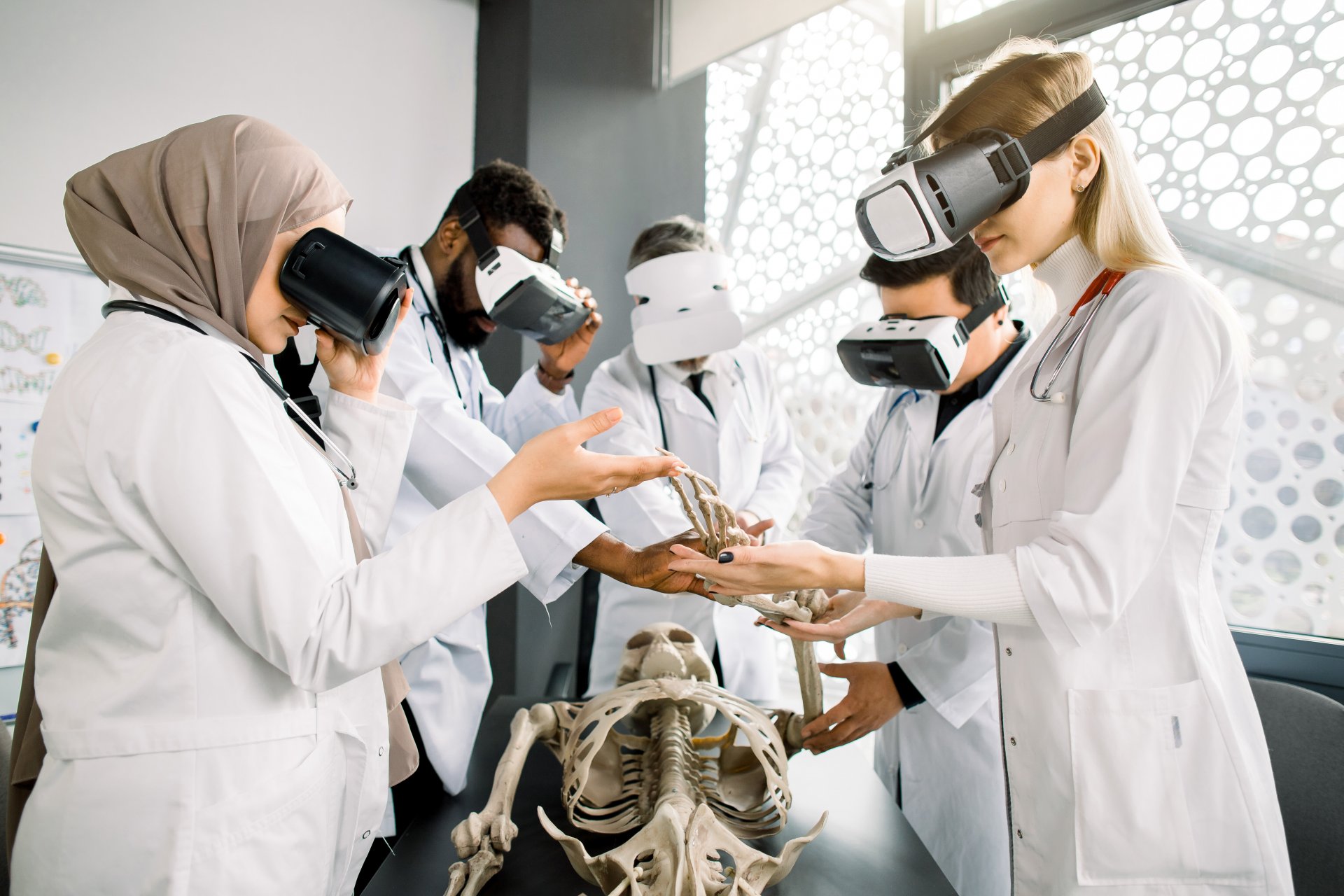Sentira XR Ltd: Revolutionising healthcare training with precision virtual reality simulations
Watch this short video for an introduction to Sentira XR:
Imagine the resources involved in training a healthcare professional – all those hours spent swabbing, stitching and scanning, not to mention the mounting costs of training lecture halls and labs full of aspiring doctors and nurses.
As the costs of practical teaching increase, as well as budgetary pressures in the Higher Educations (HE) sector, and the emergence of clear educational gaps in the training of medical and allied healthcare professionals, there is a strong drive to use digital technologies to improve educational outcomes.
The market for AR/VR (Augmented Reality/Virtual Reality) in education and training is estimated to be $2.5bn, and is growing quickly. Evaluation of Virtual Reality (VR) and its application in teaching at The University of Manchester and within the NHS has highlighted significant interest in the use of VR in HE. However, there are currently no VR education programs that are sufficiently advanced for HE medical and allied professional teaching. Sentira XR intend to meet this unmet demand.
As well as HE healthcare, Sentira XR’s target markets also include medical and allied healthcare teaching in organisations outside of HE, including Healthcare Providers, Corporate, Royal Colleges, and individual learners. The Sentira XR team have decades of experience in both undergraduate and postgraduate curriculum development and access to lecturers and students for product research and testing.
They have established a global network of collaborators and have unique access to facilities such as operating theatres and laboratories at the University and Trust. The team also has previous experience with successful AR/VR technology spin-outs.
Through the Sentira XR approach they aim to create video teaching material (e.g. of organ transplants) using 8K/360/3D technology and develop VR software simulations for global medical and allied healthcare HE and CPD markets that are relevant for today’s curriculum.
The team are now in the process of developing VR software simulations to support the development of skills across medical and allied health professionals, underpinned by current pedagogy, aligned to General Medical Council (GMC) national standards. Beyond this they intend to expand their portfolio of simulations to cover a range of skills in multiple specialisms.



